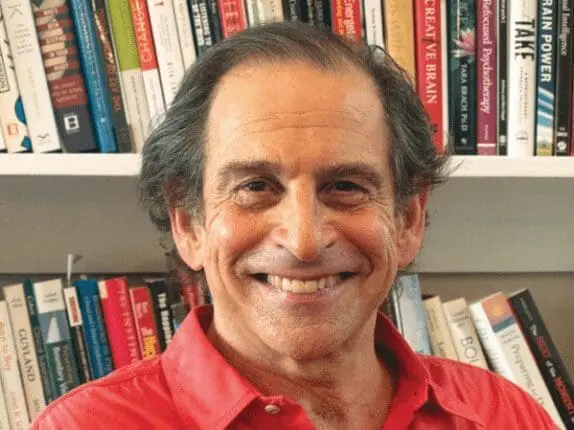Enjoy the audio preview version of this article—perfect for listening on the go.
Over the course of their careers, most psychotherapists discover that to be genuinely helpful they must learn to do something more than simply wield a set of highly specialized professional skills. But what exactly is this “something” that’s both the bedrock of therapy and the energy that propels it forward? In the now-standard tropes of our profession, we usually maintain that therapeutic attunement, healing connection, and therapeutic alliance are central to the whole therapy process. But what if we called this key ingredient compassion? The word reflects the Latin prefix com (with) and verb pati (to bear, to suffer), meaning, literally, to suffer with. No human society can be imagined without compassion as its fundamental bonding agent.
But to extend true compassion to others, we also need to learn how to extend it to ourselves. And there’s the rub. In the atmosphere of assembly-line efficiency that’s increasingly come to dominate our profession, we no longer put an emphasis on encouraging therapists to explore their own suffering with, yes, compassion, along with the clear understand- ing that this exercise in self-knowledge (or self-compassion, as we’re calling it in this issue) is the sine qua non of becoming a good therapist. After all, what’s to learn? Isn’t compassion just the innate human ability to express full-hearted solace to a fellow being in need? And yet these simple gestures of extending ourselves to others often seem like more than we can manage. So this issue of the Networker is devoted to the recognition that navigating the pathway to compassion and self-compassion is often not such an easy journey.
Recently, an old friend stopped by to see me. I’d never seen him look so stressed and unhappy as he told me about the life-threatening medical problem of somebody dear to him—and his own trouble dealing with it, and even thinking about it. As he spoke, I felt my own helplessness and resistance rise like a stone wall between us. I didn’t really want to hear his miserable story—it brought up too many of my own fears about illness, aging, death, and loss—and I felt I had no great words of wisdom to utter that would magically lighten his burden.
But perhaps inspired by the fact that I’d spent the last few months immersed in working on this issue of the Networker, I did something quite uncharacteristic. I took a deep breath and let myself just listen—not say anything, not try to “fix” anything—just be there as fully as I could in the presence of his suffering. And in those few moments, something fundamental shifted between us. Where there’d been fear and resistance, now I only felt kindness and friendship for him, sorrow for his pain, and a sense of an almost palpable current passing between us. Because I had no words to offer, I just hugged him—not something that’s usually high on my list of things to do when confronted with the intense pain of people around me.
For however long—2 minutes? 10 minutes?—we stood there in an embrace. When we finally disengaged, the heaviness of the air had lifted, as if freed of something dark, brooding, and fearsome that had been hovering over us. Now we could be open and free with each other, look at the world afresh—at least for that evening. In fact, we went out to dinner and had one of the best times ever in our long friendship, talking without reserve or shyness or self-censorship.
That’s the great thing about compassion: as an investment in human connection, it pays far higher dividends than obtained by even the deftest hedge-fund trader.
Rich Simon
Richard Simon, PhD, founded Psychotherapy Networker and served as the editor for more than 40 years. He received every major magazine industry honor, including the National Magazine Award. Rich passed away November 2020, and we honor his memory and contributions to the field every day.













